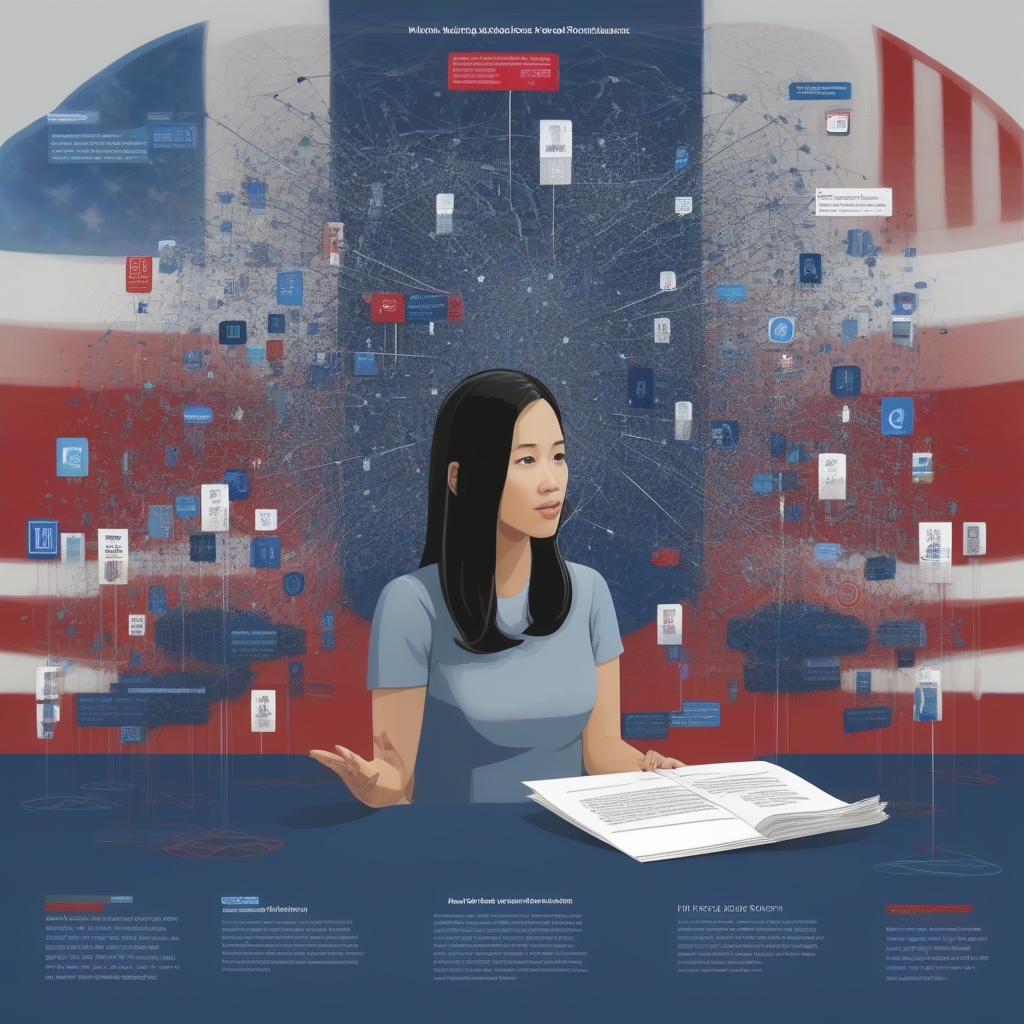The Role of AI in Shaping the 2024 Elections
As we approach the 2024 elections, the intricate tapestry of artificial intelligence woven into our information landscape presents both unparalleled opportunities and formidable challenges. AI is increasingly influencing how campaigns are run, how information is disseminated, and how voters make decisions. Understanding and navigating this complex terrain is crucial for ensuring a fair and democratic electoral process.
The Influence of AI on Political Campaign Strategies
Political campaigns have transformed significantly with the introduction of AI. **Campaign teams now harness AI** to analyze voter data, predict election outcomes, and tailor messaging to specific demographics in ways that were unimaginable just a few years ago.
- **Data Analysis and Voter Targeting:** AI can analyze massive datasets to identify voter preferences and trends, allowing campaigns to target specific voter segments with personalized messages.
- **Predictive Analytics:** By processing historical and real-time data, AI can predict voter behavior, helping political strategists allocate resources more effectively.
- **Sentiment Analysis:** Monitoring social media and news for sentiment around candidates or issues enables campaigns to swiftly adjust their strategies based on public opinion.
AI’s Role in Media and Information Dissemination
The media landscape in the digital age is vast and varied, with AI playing a pivotal role in shaping the flow of information. However, this also raises concerns about misinformation and echo chambers.
- **Content Curation and Recommendation:** AI algorithms curate the news feed you see on social media platforms, influencing the information you consume and potentially leading to a biased perception.
- **Deepfakes and Misinformation:** AI technologies can generate convincing fake videos and misinformation, posing a significant threat to the integrity of the election process.
Challenges Posed by AI in Elections
The integration of AI into the electoral process is not without its challenges. Ensuring the security and accuracy of AI-driven systems is paramount in maintaining trust in democratic institutions.
- **Election Security:** As AI systems analyze election data, they also become targets for cybersecurity threats. Ensuring the protection of these systems is crucial.
- **Bias in AI Algorithms:** AI systems can perpetuate existing biases in data, leading to biased outcomes that may disenfranchise certain voter groups.
- **Regulation and Oversight:** The rapid evolution of AI technology often outpaces regulatory measures, calling for a balanced approach to oversight.
Stephanie Sy’s Discussion: Navigating the AI-Driven Information Space
Amidst these challenges, the role of informed journalism becomes paramount. PBS journalist Stephanie Sy has been at the forefront of discussing how AI impacts the information ecosystem surrounding the elections. Her insightful moderation highlights the necessity of understanding AI’s influence on democracy.
The Importance of Media Literacy
To effectively navigate the AI-driven information space, media literacy is more important than ever. Encouraging voters to critically evaluate sources and question the authenticity of information ensures a more informed electorate.
- **Critical Thinking:** Voters are encouraged to question the sources and motives behind the information they receive.
- **Fact-Checking Resources:** Promoting awareness of fact-checking organizations helps voters discern factual information from fabricated news.
Opportunities for Positive Impact
While the challenges are significant, AI also offers opportunities to enhance the democratic process when used responsibly.
- **Increased Engagement:** AI-driven tools can engage voters by providing personalized content that motivates civic participation.
- **Access to Information:** AI can make information more accessible, helping voters gain a comprehensive understanding of electoral issues.
Conclusion: The Way Forward
As we navigate the intertwining paths of AI and democracy, it is evident that AI will play an integral role in shaping the outcome of the 2024 elections. While the challenges are substantial, so are the opportunities for positive transformation. By embracing informed dialogue, responsible innovation, and robust regulatory frameworks, we can work towards a future where AI enhances, rather than undermines, the democratic process.
In this evolving landscape, the efforts of journalists like Stephanie Sy, who strive to decipher and elucidate the complexities of AI and its electoral impact, are invaluable in guiding society towards a fair and transparent democratic process. As technology continues to redefine the boundaries of what’s possible, our commitment to electoral integrity, media literacy, and democratic values must remain steadfast.

Leave a Reply